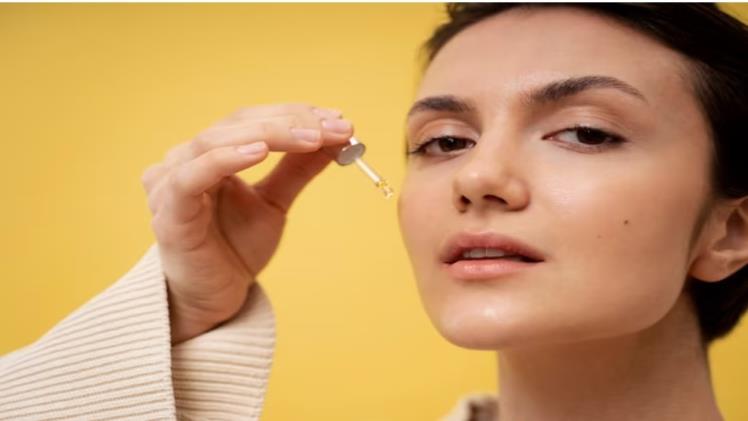In the pursuit of youthful and vibrant skin, the cosmetic and dermatological industries continuously evolve, introducing groundbreaking ingredients and formulations. Among these, anti-ageing peptides have emerged as a cornerstone in modern skin care, revolutionizing the way we approach skin aging. Understanding how these peptides work, their benefits, and how to incorporate them into your skincare regimen can significantly impact the health and appearance of your skin.
Understanding Peptides and Their Role in Skin Health
Peptides are short chains of amino acids, the building blocks of proteins, which are essential for healthy skin function. These compounds are naturally occurring in the skin and play a pivotal role in maintaining its structure, elasticity, and resilience. As we age, the production of peptides and other vital proteins like collagen and elastin diminishes, leading to the common signs of aging such as wrinkles, sagging, and loss of firmness.
The Emergence of Anti-Ageing Peptides in Skincare
Recognizing the crucial role of peptides in skin health, scientists have developed synthetic peptides that mimic the natural ones found in our bodies. These laboratory-engineered peptides are designed to target specific skin concerns, making them a powerful tool in anti-aging skincare. They work by sending signals to our cells to produce more collagen and other proteins, effectively turning back the clock on aging skin.
Types of Anti-Ageing Peptides
There are several types of anti-ageing peptides, each with unique properties and benefits:
- Signal Peptides: These peptides encourage the skin to produce more collagen and elastin, resulting in firmer, more youthful skin.
- Neurotransmitter Peptides: Often referred to as “Botox-like” peptides, they help relax facial muscles, reducing the appearance of expression lines and wrinkles.
- Carrier Peptides: These deliver trace elements like copper to the skin, aiding in wound healing and enzymatic processes.
- Enzyme Inhibitor Peptides: These slow down the natural breakdown of collagen and elastin, helping to preserve the skin’s youthful structure.
Benefits of Anti-Ageing Peptides for Skin
Enhanced Collagen Production
One of the most significant benefits of anti-ageing peptides is their ability to stimulate collagen production. Collagen is a vital protein that provides structure and strength to the skin. By boosting collagen levels, peptides help reduce the appearance of fine lines and wrinkles and improve skin texture.
Improved Skin Elasticity and Firmness
Peptides also play a crucial role in enhancing skin elasticity. By stimulating elastin production, they help maintain the skin’s flexibility, ensuring it remains firm and bounces back after being stretched.
Hydration and Skin Barrier Function
Certain peptides have been found to improve skin hydration and strengthen the skin barrier. A robust skin barrier is essential for keeping moisture in and harmful elements out, which is crucial for maintaining healthy, hydrated skin.
Reduction in Inflammation
Peptides can also have anti-inflammatory properties, reducing redness and irritation. This makes them suitable for sensitive skin types and beneficial in treating conditions like rosacea and eczema.
Incorporating Peptides into Your Skincare Routine
To reap the benefits of anti-ageing peptides, incorporating them into your skincare routine is essential. Here are some tips:
- Choose the Right Product: Look for serums, creams, and eye treatments that contain a blend of different peptides for maximum efficacy.
- Layering: Apply peptide products after cleansing and toning but before heavier creams and oils to ensure maximum absorption.
- Consistency Is Key: Regular, consistent use of peptide-infused products is crucial for seeing significant results.
- Pair with Other Anti-Ageing Ingredients: Peptides work well with other anti-ageing ingredients like antioxidants, hyaluronic acid, and retinoids.
- Sun Protection: Always use broad-spectrum sunscreen as part of your skincare routine, as sun damage can counteract the benefits of peptides.
Peptides and Sensitive Skin
Peptides are generally well-tolerated and suitable for all skin types, including sensitive skin. However, it’s always recommended to patch test new products and start with a lower concentration, gradually increasing as your skin acclimates.
The Future of Peptides in Skincare
As research continues, the potential of peptides in skincare only expands. Future formulations are likely to become more targeted and efficient, addressing a broader range of skin concerns with even greater precision.
In conclusion, anti-ageing peptides offer a revolutionary approach to combating skin aging, providing multiple benefits from enhancing collagen production to improving skin elasticity and hydration. As part of a comprehensive skincare regimen, these potent molecules can significantly contribute to a more youthful, radiant complexion.





